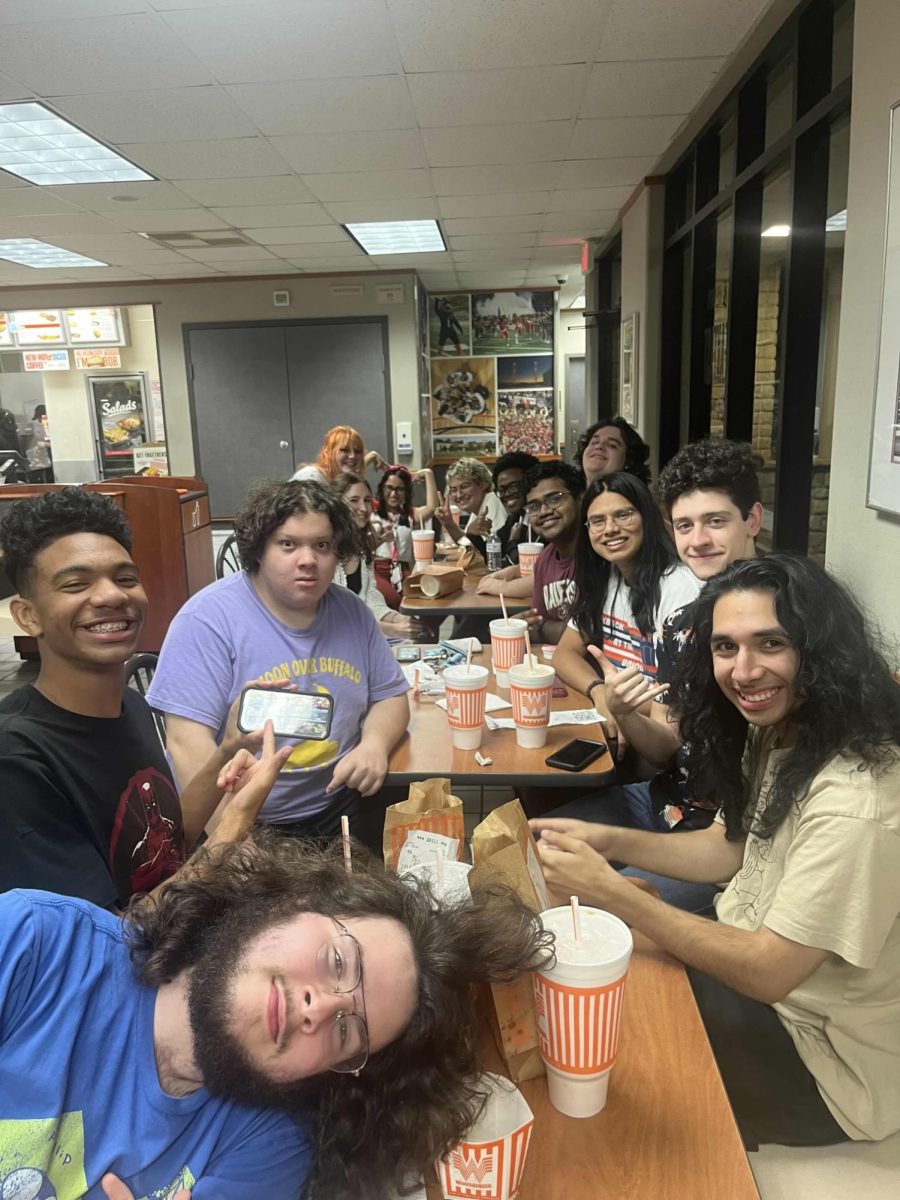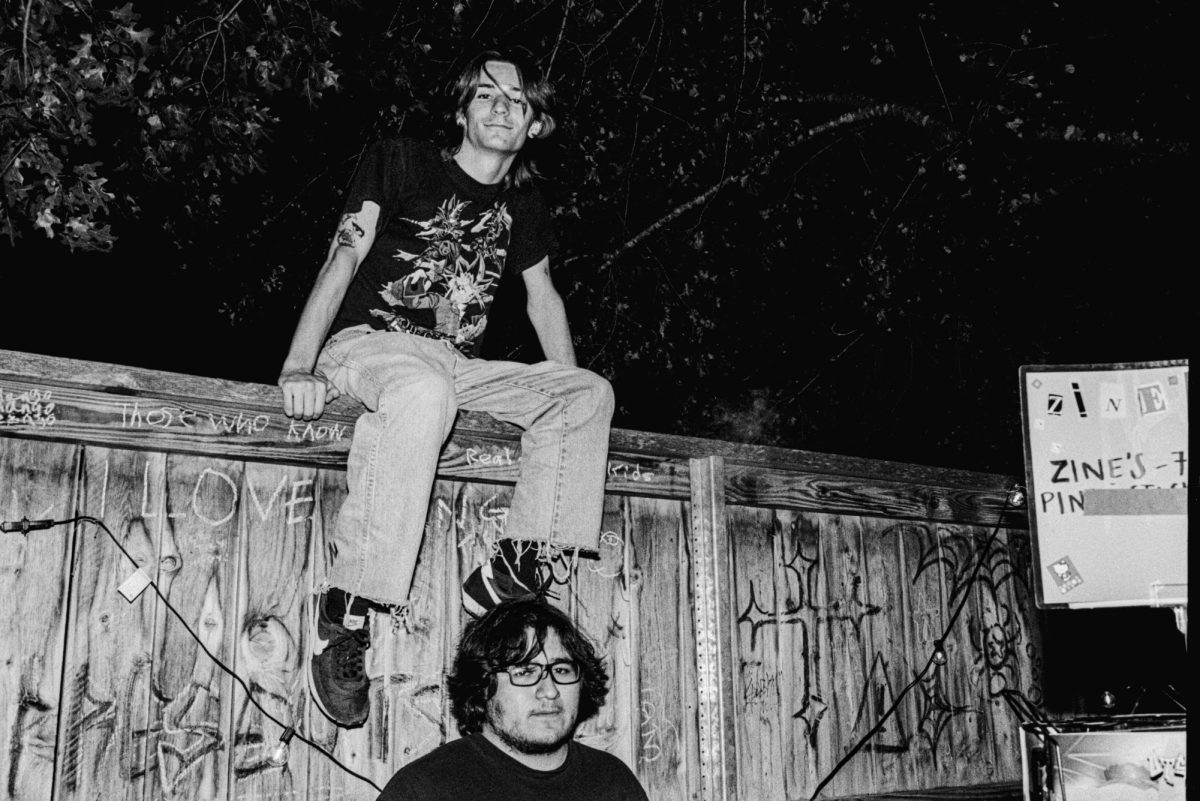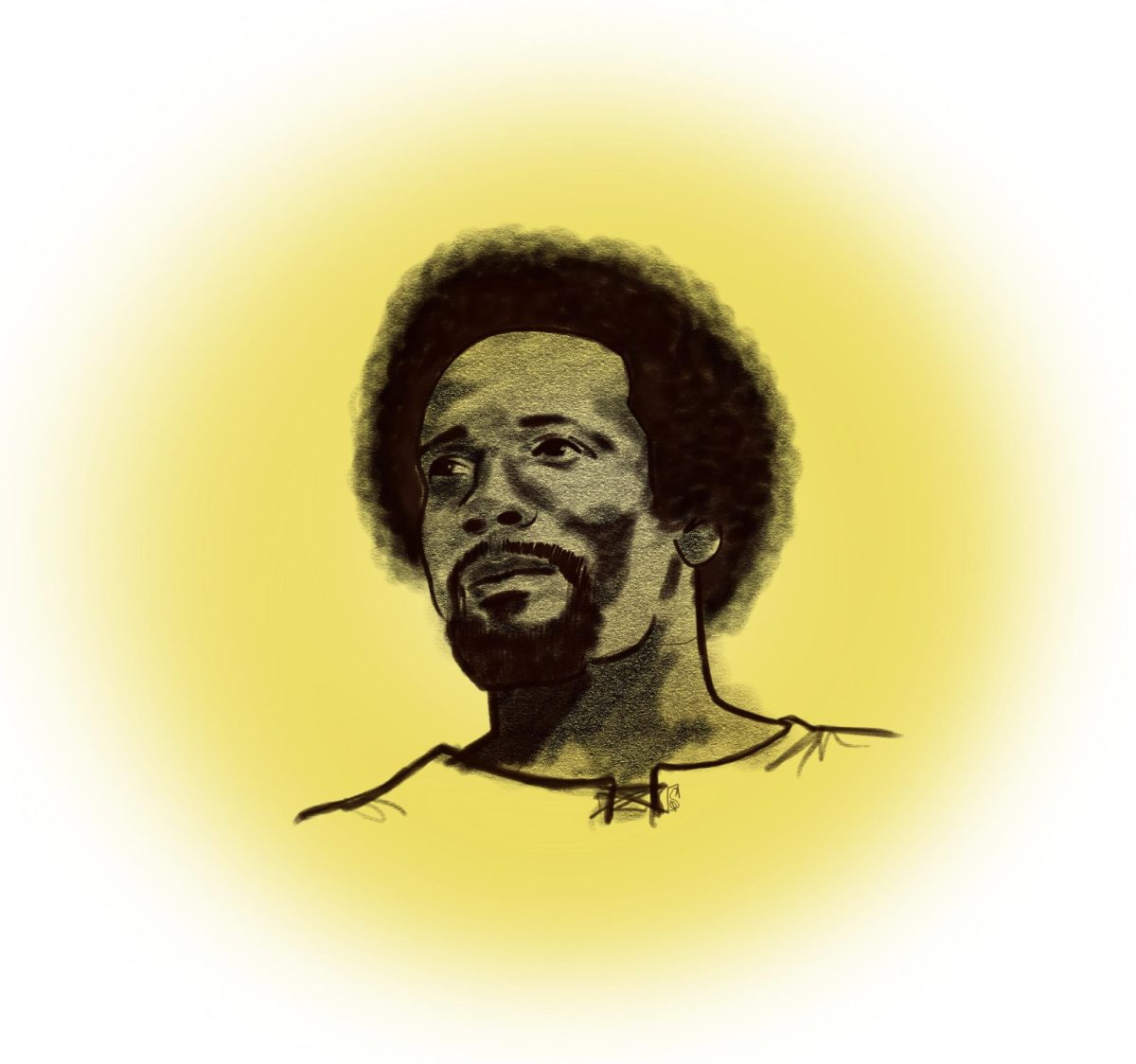For UTSA’s eSports Community, the party doesn’t start until everyone shows up, laptops included.
The eSports Community held their third annual Fall Local Area Network (LAN) event on Nov. 1 in the UC Denman Room. The LAN party allowed the public to connect any of their gaming consoles into UTSA’s internet network, Air Rowdy.
“The idea of a LAN is to get all these people to grab their computers, drag them away from their houses, and then come hang out together in a big room with a whole bunch of other nerds and play video games with each other all day,” Devon Johnson, president of the eSports Community, said. “It’s like the pinnacle of what eSports tries to do.”
Short for Electronic Sports, eSports is used to describe the world of online competitive gaming. It covers a wide variety of videogame genres such as real-time strategy, first-person shooter, fighter and multiplayer online battle areas and has recently seen a huge surge in popularity. For example, the game League of Legends (LoL), is one of eSports’ biggest competitive platforms with an average of over 27 million players per day.
This sudden swell of support has resulted in eSports clubs springing up at universities across the world – UTSA included. Founded in 2011, the eSports Community is a registered member of The ESports Association (TESPA) and is already a major force in collegiate tournaments. Of the five main games played competitively – LoL, Dota 2, Counter-Strike: Global Offense (CS:GO), StarCraft 2 and Hearthstone – UTSA’s group plays in three: LoL, CS:GO and StarCraft.
“We have two League of Legends teams that compete every weekend against other college clubs,” Johnson said. “Last year, UTSA’s LoL team made play-offs in the C-Star League, and they’re 2-1 this season. Our CS:GO team also made playoffs.”
Despite their success and 800-plus Facebook members, the eSports Community still remains a somewhat obscure group on campus, with many students unaware of its existence. According to Johnson, this lack of publicity is one of the reasons for its annual LAN party.
“What we hope is that by putting on big events like these, we can really increase the amount of gamers we bring out,” said Johnson. “Anyone can come and anyone can participate, and that means anyone can hear about it, even people who aren’t students here. And that could become a driving goal for people to attend UTSA since this isn’t something you see everywhere yet.”
In order to draw in as many people as possible, the eSports Community made sure the LAN party catered to every gamer’s preference.
Younger or more mild-mannered gamers knocked each other out of Super Smash Bros’ levels on Gamecubes and N64s, while those looking for something grittier finished opponents off in Mortal Combat matches on Xbox 360s. More commonly, gamers simply brought in their own computers – both laptops and desktops – and made use of the LAN connections to compete together online. A small LoL tournament was also held, with prizes consisting of gift cards and various gaming merchandise.
“I think what makes this thing so great is that there’s so much variety,” UTSA sophomore Jesus Zamora said during a break from raiding dungeons in World of Warcraft. “There’s really something for everyone.”
Alex Hernandez, a freshman who was exploring the fictional world of Tamriel in The Elder Scrolls: Online, agreed with Zamora. “It’s just the atmosphere, I think. Everyone here loves playing games, and right now we’re all getting to do that together. Even grinding (engaging in basic, repetitive tasks in order to level up) is more fun this way.”
While Johnson was excited by the positive feedback the event received, he was also unsurprised. “It’s just more fun to play video games when you’re with people,” he explained. “It makes it easier to punch them in the arm when they beat you.”
For those interested in learning more about the organization and its future events, information can be found on their UTSA eSports’ Facebook page or Twitch channel.






